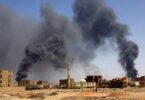Abir Kopty
The Palestinian people are the only ones that can rescue their cause from the jaws of the Palestinian Authority’s defeat. It come as no great revelatory surprise to say that the Palestinian cause has been facing huge challenges in the last two decades.
The Israeli occupation is “flourishing”. The Palestinians are more divided than ever. The Palestinian leadership has betrayed Palestinians. The international community is impotent. The region is collapsing and Israel has been the big winner. The Arab world is normalising its relations with Israel publicly. Perhaps the only two rays of light amid this despair are that the Palestinian people are still resilient and steadfast, and the Boycott, Divestment and Sanctions (BDS) movement is growing.
The time is ticking and action is needed before we find Palestinian leadership, backed by Saudi and Egypt, signing a sell-out deal with Israel. It is hard to find a magic formula, but it is important to point out the issues that need to be addressed. I suggest five: the Oslo accords, economy, representation, resistance and our future vision. So, should we just dissolve the Palestinian Authority or just change its role?
This question raises a great challenge. The Palestinian Authority (PA), has turned into a subcontractor to the Israeli occupation that rules only a minor part of the Palestinian people while it has power over the fate of all Palestinians. In theory, it shouldn’t because that is not its role, but in reality it has hijacked this role by hijacking the Palestinian Liberation Organization. The PLO is an umbrella organisation but is chaired by Mahmoud Abbas, who is also the chair of the PA. One can’t discuss the dissolution of the PA without discussing whether we should end the Oslo agreement or not. A package deal dissolving the PA means, definitively, the end of Oslo, and vice-versa.
Of course, this is not a simple process because the Palestinians are trapped and such a move should be followed by alternatives on how to manage our lives and our fate – but mainly on how to maintain social and economic survival and internal security.
The Palestinian economy in the West Bank and Gaza is largely dependent on the Israeli economy, foreign funding and humanitarian aid. This is one of the most malicious traps of Oslo. Palestinians need to think of how to build a self-sufficient economy that guarantees social solidarity and the integrity of any future Palestinian state.
And while these questions are mostly relevant for the Palestinians living in Palestine, there are more relevant questions for the Palestinians elsewhere, who have been totally marginalised and abandoned. Namely, this is a question of representation. Should Palestinians abandon the PLO and build a new representative entity or should PLO be reformed? This is a never ending debate among Palestinians.
However an old or new entity, is not the main question. The real dilemma is how to ensure that any future entity or iteration of the PLO genuinely represents the 12 million Palestinians in historic Palestine (including Palestinians in Israel), refugee camps, and the diaspora. And further, how can Palestinians create and maintain a version of a “direct democracy” where everyone participates in decision making?
Representation and participation are crucial issues for Palestinians, especially in light of the disappointments of the current leadership.
While the Palestinian Authority merely represents (or rather, rules) Palestinians in the West Bank, Palestinians in Israel have been marginalised and pathetically considered as Israel’s “internal issue”. Palestinians in Gaza are not only locked up in a physical open-air prison, but are also locked out and isolated politically. On the other hand, Palestinians in refugee camps and in the diaspora have been neglected and abandoned by the PLO – which purpotedly represents their interests.
Ensuring representation for all is important for creating a new vision for the liberation of Palestine, but that leads to another question: what should be our strategy for resistance?
All Palestinians should be able to engage in the process of deliberation and decision making.When talking about a vision for Palestine, one of the most common questions discussed among Palestinians is the question of a one or two-state solution. Considering that the two-state solution is dead—actually, it’s been dead a long time—it is about time it was abandoned. For many Palestinians, it was never a viable solution considering the greedy colonial nature of the Israeli occupation. What Israel wanted for seventy years is not peace nor a two-state solution, it wanted maximum land with minimum Palestinians. It is time to move forward beyond the rhetoric of Oslo and re-think an alternative vision that does not include colonialism, apartheid or occupation.
How to reach that point is important. What this entity will look like needs to be discussed and how it will guarantee historic justice is what matters. These issues are often discussed by Palestinians everywhere, in historic Palestine or in exile. In houses, cafes, meetings, online and offline. Now is the time to discuss this collectively and find a new path out of the despair, and towards a vision of liberation and justice.






